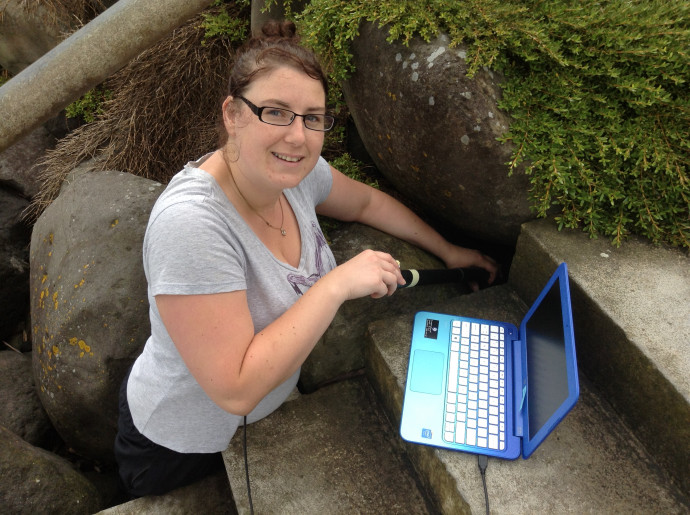Matapu School – Leesha Clark

2016 | Surveying Taranaki - making data count
School: Matapu
Host: MAIN Trust
Region: Taranaki
Matapu School is part of a progressive cluster of schools who have a shared vision for how they want education to progress over the cluster. They are focusing on STEM (science, technology, engineering, mathematics) subjects across the cluster in order to improve the quality of teaching and learning in our schools. The cluster has a strategic plan designed specifically around these areas. Each school has selected someone to be part of a Science Research and Practice team who will be analysing how science is taught and using this analysis to improve the quality of science education.
Leesha is a primary teacher with six years of experience. Up to this point she has taught junior students at Matapu School in South Taranaki with middle school students awaiting her when she returns to Matapu.
Leesha has been hosted by Elise Smith of MAIN (Mapping Analysis Information Network) Trust in New Plymouth. The Trust is involved in helping community groups to use digital mapping tools to analyse, interpret and present information to be used in research, policy and decision making.
The initial project Leesha was involved with was Project Hotspot. This is a Curious Minds project run by Nga Motu Marine Reserve through NatureWatch New Zealand, with funding from MBIE (Ministry of Business, Innovation and Employment). The aim of this project is to capture local knowledge on four coastal threatened species in Taranaki (Orca, Reef Heron, Little Blue Penguin and New Zealand Fur Seal) and use this information to better protect these species and their habitats. Leesha was involved with the collection of evidence of species occupation and movements, school visits and Coast Blitz activities to raise community awareness.
Another project Leesha was involved in was Pest Mapping. She had the opportunity to see what becomes of the raw data gathered by scientists and workers on the ground. The Pest Mapping projects she was specifically involved in include Pukeiti Gardens and Tapuae Estate, both run by the Taranaki Regional Council. Through her experiences of helping design GIS (Geographical Information System) maps, ‘cleaning,’ entering, analysing and interpreting the historical and current data, she gained an insight into two things that should always be kept at the forefront of the mind;
- What is the purpose of collecting the data and what is it going to be used for?
- What is the best way to display the data so it can be used effectively to make informed decisions for the future?
Leesha learned the necessity of precise and consistently recorded information to remove bias and inaccuracies. She leaves this program with a greater appreciation of the Nature of Science, and the five capabilities.
Leesha would like to thank Elise Smith at MAIN Trust for her time, patience and willingness to guide Leesha through bumps in the road. Also, Leesha would like to extend an enormous thank you to her school for their support in the application to come on this program. She is looking forward to coming back to Matapu to share her experiences, new skills and enthusiasm while working with the staff as a new Science Program is developed.
